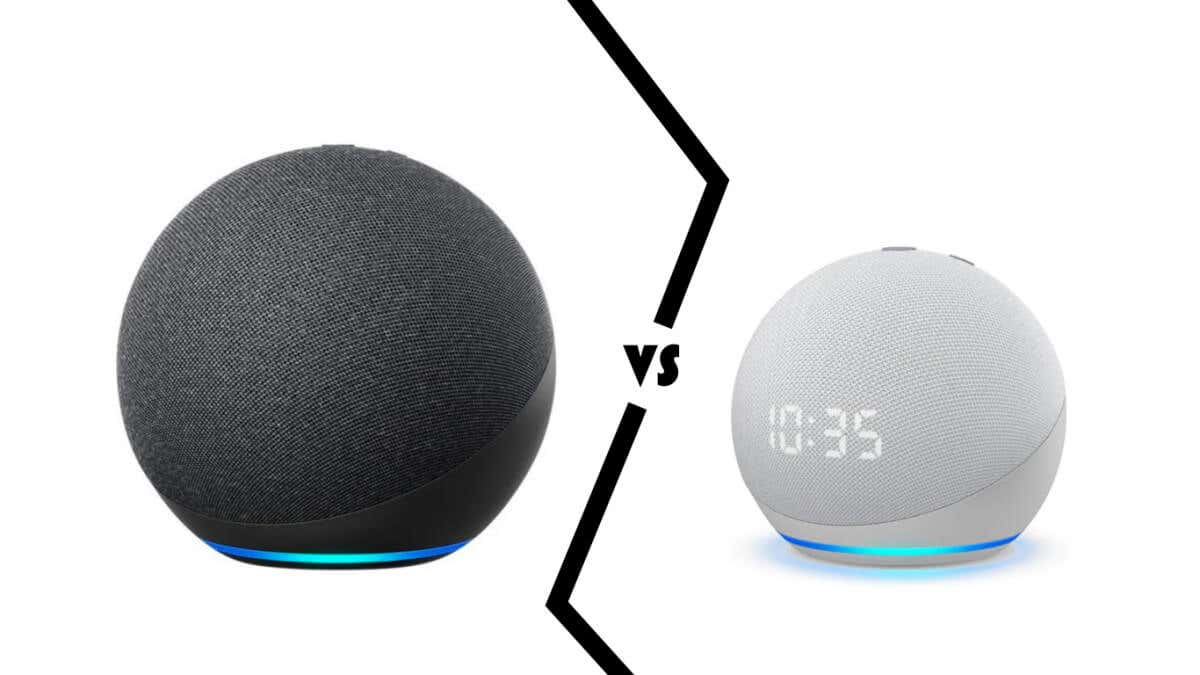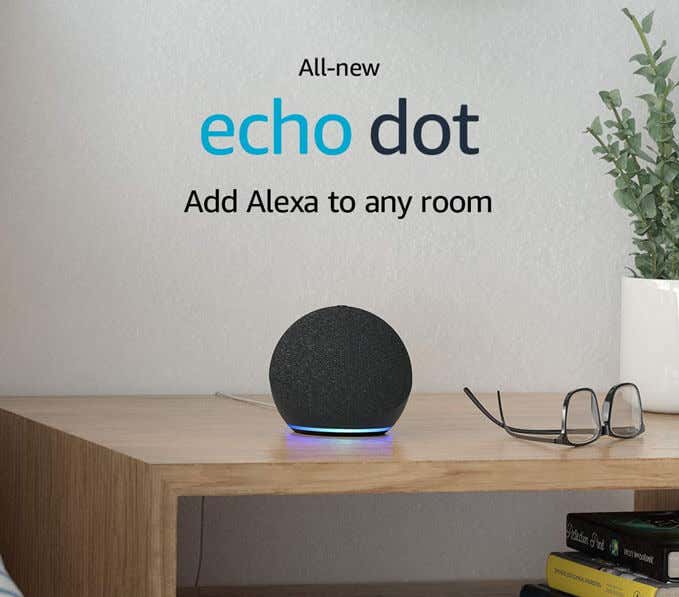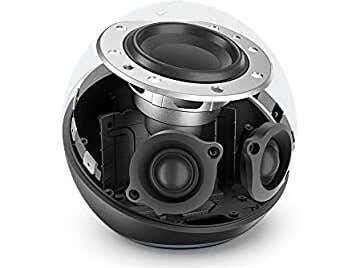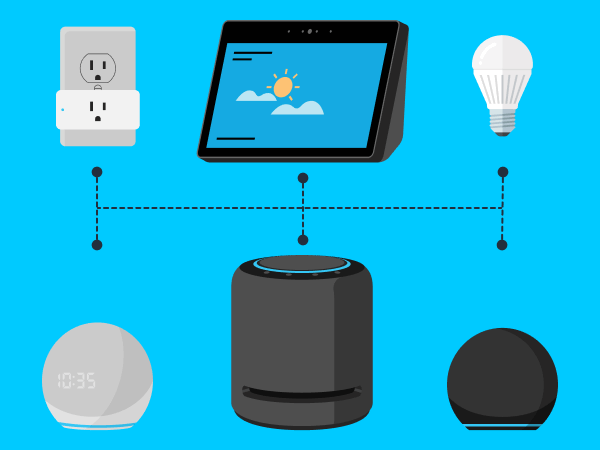Sound quality is also on par, even if the Echo boasts of a larger, slightly more powerful speaker. And while the Echo has more microphones to catch your voice commands better, you’re unlikely to run into issues with Echo Dot’s four microphone array either. If you can get the latest Echo Dot 5, you even get temperature and motion sensors that were lacking in the previous generation. And since Echo has yet to get a Gen 5 upgrade, you get a better processor with the new Echo Dot.
Aesthetics
With the 4th Gen, both the speakers were converted to fabric-covered spheres with better acoustic and aesthetic quality. The only difference between them is the size – the Echo Dot is much smaller than the more powerful Echo. Both devices also feature an LED ring around the base that lights up in different colors depending on the state of the device. Some versions of the Echo Dot also come with printed skins and an LED clock on the device, making it visually distinct from the more somber look of the Echo (and a normal Echo Dot).
Sound Quality
The transition to a spherical design turned both Echo devices into 360-degree speakers, boasting better sound quality. On top of that the speakers use Dolby processing to provide cleaner vocals and improved bass response, further elevating the audio performance. Obviously, the Echo possesses a larger speaker, a 3-inch woofer, and a pair of 0.8-inch tweeters, giving it an edge over the smaller Echo Dot, even in its latest form. That being said, both speakers make for excellent standalone speakers, thanks to their ability to sense the acoustics of the room and adjust their dynamics accordingly. You can also pair multiple Echo speakers (or Echo Dot, for that matter) to create a whole stereo sound system.
Smart Device Compatibility
The Echo speakers make for great smart home hubs, allowing you to control your smart devices using Alexa voice commands. Both Echo and Echo Dot possess this functionality, though the specific frameworks supported vary a bit. Devices designed especially for Alexa – like Philips Hue lights – work seamlessly with both speakers, no matter which version. Echo and Echo Dot can also serve as the bridge for any smart devices belonging to the Sidewalk ecosystem (as well as Matter, but that’s because the standard is intended to be cross-platform). Zigbee smart devices, on the other hand, can only use the 4th Gen Echo, making it a must-buy for those with a Zigbee-based smart home network. Similarly, only the 5th Gen Echo Dot can act as an Eero Wifi extender, adding a handy functionality for anyone with an Eero router.
Alexa
You can set routines, do your shopping, and of course, listen to music using Alexa.
The Echo Gen 4 comes with the AZ1 Neural Edge chip, while the newer Echo Dot uses the latest AZ2 Neural Edge processor, giving it a small fillip in performance. The machine-learning optimized silicon also lets both Echo speakers offer advanced features like Natural Turn-Taking and Guard Plus.
Pricing
The standard pricing of the Echo speakers has been kept at nice round figures, with the Echo costing $99.99 and the Echo Dot exactly half of that – $49.99. For the Echo Dot, you can also get the clock variant at $59.99. Of course, these prices rarely remain static, with offers and discounts often driving the price down significantly. And that’s before you look into the older generations of these speakers that are already marked down from their original prices.
Features Exclusive to the Echo Dot
If budget isn’t an issue, you should consider getting both Echo and Echo Dot. The Alexa ecosystem works best when you have an Echo device in every room, and Echo Dot is priced low enough to throw down a couple in random spots. The Dot is especially suited for your kids and even as an alarm clock for your bedroom, while the Echo’s greater audio output makes it the better music solution for the living room. The Echo Dot can also be put down as a wifi mesh extender for an Eero router, covering blind spots with network connectivity and music. But you can’t go wrong with the Echo Dot if you have to get just one. Sure, the bigger Echo has better speakers, but the Echo Dot offers more features and a more advanced processor. Unless you’re looking to use the speaker as a Zigbee bridge, there’s nothing the Echo can do that the Echo Dot can’t.





